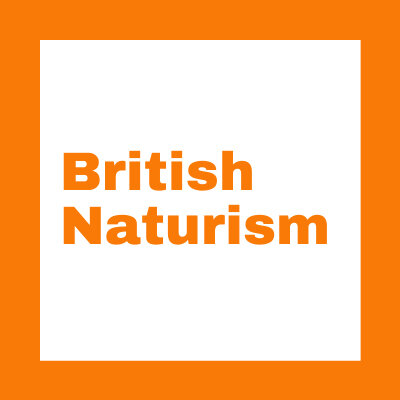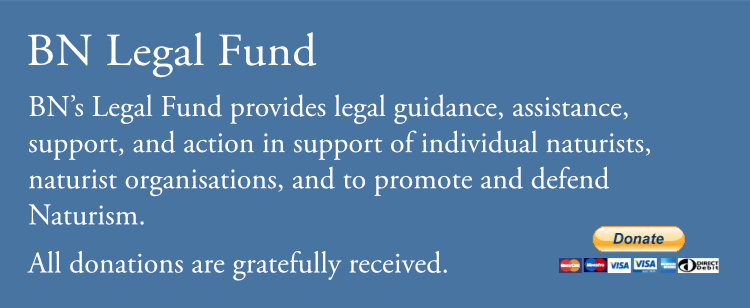 Andee Rodgers is the Women In Nude Recreation (WINR) Chair for the American Association for Nude Recreation (AANR) and founder of the Women One Word (WoW) campaign, which promotes body positivity and self-acceptance. Based near Estacada, Oregon, she also serves as the AANR Northwest President.
Andee Rodgers is the Women In Nude Recreation (WINR) Chair for the American Association for Nude Recreation (AANR) and founder of the Women One Word (WoW) campaign, which promotes body positivity and self-acceptance. Based near Estacada, Oregon, she also serves as the AANR Northwest President.
Q: What got you into naturism/nudism?
A: I wanted to surprise my husband with a visit to a naturist resort. At the time, I had no experience with naturism and was actually very uncomfortable with my body. I arranged the surprise even though I was struggling with deep body image issues, insecurities that had followed me for most of my life.That first visit was a huge step for me. I remember feeling incredibly uncomfortable, and honestly, it took me about eight years to really embrace naturism. But despite my fears, I wanted to do something special for my husband and that’s what led me into this world I never expected.
What started as a difficult experience slowly turned into something transformative. The women I met at the club were incredibly supportive and played a big part in helping me feel safe and accepted. Over time, naturism became a powerful and healing part of my life. It helped me build a much healthier relationship with my body and, more importantly, with myself.
Q: Is there a difference between Naturism and Nudism?
A: For me, both words reflect a lifestyle that embraces body freedom, self-acceptance, and a sense of community. While I understand that some people draw clear lines between the two - with “naturism” often viewed as more philosophical or nature-oriented, and “nudism” seen as a more general practice of being nude - I’ve found that in many real-life conversations and experiences, the terms often overlap. When I speak about my journey or the community I’m a part of, I don’t usually pause to make a distinction, because for me, it’s more about the deeper meaning behind it all: connection, healing, and authenticity, regardless of which label you use.
Q: How does it impact your life on a day-to-day basis?
A: Naturism plays a central role in my daily life through ongoing advocacy and outreach. As chair of Women In Nude Recreation (WINR), I travel frequently to lead workshops and seminars that promote body positivity, self-acceptance, and community among women. Each day, whether I'm planning events, mentoring others, or sharing my story, I'm focused on empowering women to embrace their authentic selves and helping create more inclusive, supportive spaces within the naturist community.
Q: What challenges do women face in naturism generally?
A: As a woman in naturism, I’ve seen, and personally experienced, the unique challenges many of us face. Body image struggles are a big hurdle; for most of my life, I disliked my body, and stepping into naturism felt incredibly intimidating. Women also go through so many physical changes, like after childbirth or during menopause, that make self-acceptance an ongoing journey. On top of that, we’re constantly pushing back against the misconception that naturism is sexual, which creates real barriers to feeling safe and understood. That’s why I’m so passionate about creating supportive spaces through the WoW campaign and the ImPerfect Tour, places where women feel respected, represented, and empowered to embrace who they truly are. Without those safe, encouraging communities, many of us might never take that first step.
Q: How can we encourage more women to try it?
A: I believe that encouraging more women to explore naturism starts with creating intentional and supportive spaces. Through my WoW (Women One Word) campaign, I invite women to choose a word that reflects their personal journey, helping them connect more deeply with the naturist experience. With the ImPerfect Tour, I focused on body-positive messaging and built women-centered spaces that inspire confidence and connection. Representation is incredibly important to me; I want women to see real, diverse bodies so they know they belong, just as they are. I also work hard to challenge the misconception that naturism is sexual, and instead highlight its foundation in body acceptance and mental well-being. I know from my own experience how vital peer support and mentorship can be, and I encourage a gentle, gradual approach to help women ease into the lifestyle. By sharing authentic stories through social media and building online communities, I hope to reach more women and let them know they’re not alone on this journey.
Q: How can women help in desexualising nudity?
A: Women can play a powerful role in desexualising nudity by showing up, speaking out, and supporting one another in naturist spaces. When we actively participate in organisations like AANR, our presence helps normalise non-sexual nudity and shifts the focus toward body acceptance and personal growth. Sharing our authentic stories, like through the WoW campaign, helps others see naturism through a lens of empowerment, healing, and self-acceptance rather than through the sexualised lens society often applies. I believe education is key. When we speak openly about how naturism has helped us overcome body image struggles and improve our mental well-being, we change the narrative. Creating women-focused events like the ImPerfect Tour gives us the opportunity to experience naturism in safe, supportive environments free of sexual connotations. By supporting one another and reclaiming language that celebrates our bodies, like turning "imperfect" into "I'm perfect", we redefine what nudity means. Through advocacy and accurate media representation, we can continue to challenge and change how the world views the nude body.
Q: What can men do to help in desexualising nudity?
A: I believe men can play a key role in desexualising nudity by creating respectful environments, modeling appropriate behavior, and supporting women-led initiatives like the WoW campaign. During our ImPerfect Tour, my husband Tom spoke with men about AANR’s values, helping shift perceptions around naturism. When men openly share their own journeys of body acceptance and challenge stereotypes about male sexuality, it reinforces that naturism is about healing and self-respect, not sexualisation. By engaging in honest conversations and promoting safe, inclusive spaces, men help redefine nudity as natural and non-sexual.
Q: How can we encourage body positivity and acceptance?
A: I believe body positivity and acceptance start with creating safe, supportive spaces where people can see and connect with real, diverse bodies. My journey began with the encouragement of women at my naturist club, and it grew through initiatives like the WoW campaign and the ImPerfect Tour, which help reframe negative self-perceptions and promote empowerment. When we challenge harmful beauty standards, share authentic stories, and surround ourselves with acceptance, we create a path from body shame to self-love - not just for ourselves, but for others too.
Q: What advice would you offer to women curious about naturism?
A: If you’re curious about naturism, start by defining your own experience and setting boundaries that feel right for you. Take small steps and, if possible, go with a trusted friend to make the first experience less intimidating. Naturism is about self-acceptance, not appearance, and the community is non-judgmental. It can be healing, especially for those with body image issues or past trauma, offering a space for self-love and autonomy. Remember, naturism is non-sexual; it’s about freedom, comfort, and connection with nature. Exploring body positivity communities online can also help build confidence before trying naturism in person.
Q: What drives your passion in promoting naturism?
A: My passion for promoting naturism comes from my own journey of body acceptance and healing. Struggling with body image issues and an abusive childhood, naturism helped me develop self-love and improve my mental well-being. I’m driven to create safe, supportive spaces for women, just as I received when I first started, and challenge societal beauty standards through campaigns like WoW. I believe in the power of community within naturism and am committed to correcting misconceptions about it, especially regarding its non-sexual nature and its positive impact on mental and physical health.
Q: How do you see the future of naturism?
A: Andee is optimistic about the future of naturism, focusing on expanding its reach and inclusivity. She plans to create short videos for social media to share positive stories and change perceptions about naturism. Through her Imperfect Tour, which has already visited 16 clubs across 8 states, she connects with women in naturist communities to promote body positivity. Andee envisions naturism becoming more inclusive, with greater participation from women and younger generations. A key part of her vision is the WoW (Women One Word) campaign, which empowers women to share their experiences and promote body positivity, furthering the movement’s message of self-acceptance.
![]() Andee will feature on episode 18 of the Women in Focus podcast.
Andee will feature on episode 18 of the Women in Focus podcast.













